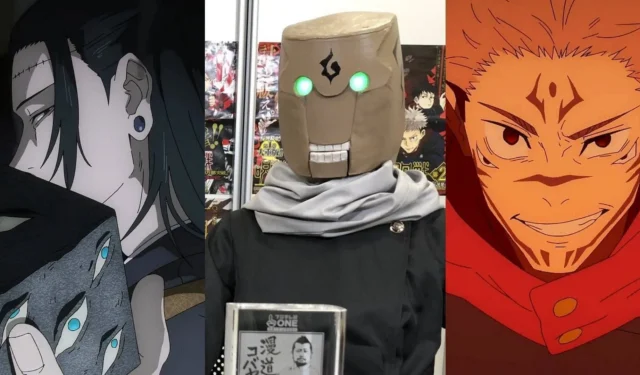
Despite its popularity, Gege Akutami’s Jujutsu Kaisen has garnered attention for the author’s tendency to kill off beloved characters, adding an element of unpredictability and tension to the plot. The constant possibility of a newly introduced character meeting their demise has fans on the edge of their seats, anxiously anticipating who may be the next to fall.
Despite the series’ release, there has been a consistent demand from fans for Akutami to focus more on developing the characters and their narratives. While some may feel that Gege Akutami’s writing does not adequately portray the depth of its characters, it is important to consider that this may not be an accurate representation of the mangaka’s storytelling abilities.
Despite fans occasionally expressing frustration, Akutami has consistently showcased his skill in crafting compelling and well-developed villains that play a crucial role in propelling the story forward. Therefore, although there may be misunderstandings surrounding the mangaka’s approach, his knack for creating intricate and unforgettable antagonists serves as a testament to his talent as both a writer and artist.
The Fascinating Villains of Jujutsu Kaisen
Gege Akutami’s Jujutsu Kaisen is known for its well-written and fascinating characters. The story is carefully plotted, featuring enthralling plot twists, surprises, and cliffhangers that grip readers until the very end. However, the series has gained a reputation for unexpectedly cutting short the stories of beloved characters.
Despite the well-crafted plot, Gege Akutami’s writing has been criticized by some fans for giving the impression of rushed storytelling and a lack of consideration for the characters. However, this belief that the mangaka’s writing lacks depth or care for its characters is unfounded, as demonstrated by the complex and nuanced portrayal of the series’ villains.
Each villain is intricately crafted with compelling motivations and backstories. Fans admire Akutami’s dedication to creating unique powers and Cursed Techniques, featuring complex enhancements that set them apart from traditional antagonists.
Additionally, the antagonists possess a range of personalities; some possess defined objectives and beliefs, whereas others have obscure motives. Despite this variety, each villain fulfills a unique role in driving the storyline forward.

Sukuna’s personality and abilities are influenced by the legendary demon Sukuna mentioned in Nihon Shoki, while Kenjaku’s character is depicted as multifaceted, motivated solely by his own gratification, in contrast to Sukuna, who remains steadfast in his own convictions and principles.
Despite their deaths, cursed spirits like Jogo and Mahito continue to be distinguished from other villains due to their unique personalities and goals. Their lasting impact on viewers is evident as fans frequently engage in discussions about their characters and analyze their significance in the series, showcasing their crucial role in the narrative.
In the context of character deaths, it is important to note that they are never random, but rather serve a purpose in driving the narrative forward. Whether a character’s demise occurs after fulfilling their purpose or is used to move the story ahead, it is always justified within the context of the plot.
Although these deaths may be disappointing for fans who were hoping for further character development, they serve to emphasize the mangaka’s storytelling approach. Akutami deliberately subverts conventional storytelling techniques to introduce unpredictability, which adds to the series’ distinct charm.
Concluding Remarks
Gege Akutami draws significant inspiration from the writing of Yoshihiro Togashi, which is clearly reflected in the storytelling of Jujutsu Kaisen. It is worth mentioning that this influence is noticeable in the narrative of the series.
In Jujutsu Kaisen, Akutami’s writing style bears resemblance to Togashi’s, as both authors have a tendency to discard characters once their purpose has been fulfilled. This shared approach of moving on from characters after their role has been served is a defining characteristic of both authors’ works, making it unsurprising to see it in Jujutsu Kaisen.




Leave a Reply